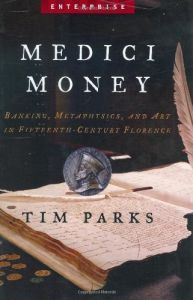Join getAbstract to access the summary!

Join getAbstract to access the summary!
Tim Parks
Medici Money
Banking, Metaphysics, and Art in Fifteenth-Century Florence
Atlas Books, 2005
What's inside?
History seen through banking: how the Medici ruled Florence for five generations of tyranny, war, usury and art.
Recommendation
If your knowledge of the Medici family begins and ends with their patronage of Renaissance artists, sharp-penned writer Tim Parks has some revelations to share. True, the Medicis used the wealth they amassed from their bank to turn Florence, Italy, into the Mecca of fifteenth-century culture. Yet, the Medici clan also perfected the arts of vanquishing foes and allying with the rich and powerful to gain a stranglehold on political power - all in bold-faced defiance of Catholic Church doctrine. The Vatican held that paying or collecting so much as a penny of interest was a mortal sin. Parks’ book shows you what the Medici made of that, and his arch, witty style is a joy to read. Perhaps the only caution is that this history is more a study of the spiritual and social history of Florence than a guide to the Medicis’ business successes and failures. getAbstract.com recommends this history to anyone interested in the intersection of money, politics and religion.
Summary
About the Author
Tim Parks is the author of 11 novels, including Europa, Destiny and Rapids. Parks also has written three memoirs of his life in northern Italy and is a prolific translator of Italian writers.


















Comment on this summary